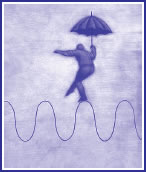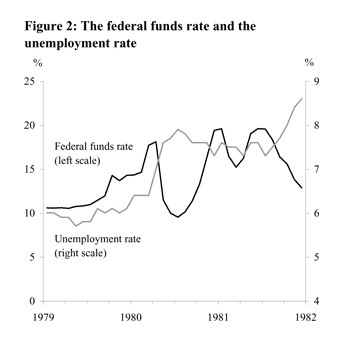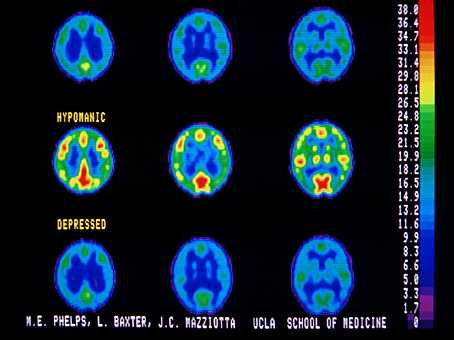June 09, 2005
October 6, 1979: Capitalism and Bipolar disorder
 |  |
Realism has nothing to do with the Real. On the contrary, the Real is what realism has continually to suppress.
Capitalist realism, like Socialist realism, is about 'putting a human face' on and naturalizing a set of political determinations. The komissars of kapital like to pose as tough-minded pragmatists who tell unpalatable truths and who alone are capable of facing up to the harsh 'realities' of the world. Yet kapitalism - no less in its its soon-to-take over Chinese State version than in its soon-to-collapse American model - is based upon a slew of fantasises so credulous that they are almost charming. In a powerful piece in the Independent today, Johann Hari parallels the militant complacency of the current ruling elite with the thinking of previous highly developed social groups, such as the Incas and the Mayans, which had 'committed ecocide'. 'What were Easter Islanders saying as they cut down the last tree on their island?,' Hari quotes geographer Jared Diamond asking in his book Collapse - How Societies Choose to Fail or Survive. It is grim to reflect that the answers - 'jobs not trees!' or 'technology will solve our problems; never fear, we'll find a substitute for wood' - are precisely the rationalizations that a thanatropic drive would produce in order to do its work. In the unconscious, Freud says, no-one really believes they will die, and this is no doubt also true of civilizations, which despite the melancholy monuments testifying to the demise of Maya and Easter Island, are convinced that they are the exceptions, they are the one which cannot perish.
It is easy to see what capitalist 'realism' means when you consider Blair's habitual response to appeals from the environmental lobby. Measures to rein in eco-catastrophe may well be desirable - even necessary - but they, Blair tells us with a heavy heart bursting his sleeve, are 'politically impossible'. Here, then, is capitalist 'realism': the reduction to the realm of the 'impossible' of any steps that will prevent the destitution of the human environment. For that is what 'realism' amounts to: not a representation of the real, but a determination of what is politically possible. But what is politically possible is at odds with what is physically possible, so in a sense, it is the servomechanism-agents of Kapital, not their opponents, who 'demand the impossible' now. Their fantasy of a sustainable Kapitalism carrying on, forever, without burning out the planet, is perfectly delirial.
Another insight into capitalist realism was provided last week by Marxist economist Christian Marazzi (Scuola Universitaria Professionale della Svizzera Italiana, Lugano, Switzerland) whose lecture 'Finance, Attention and Affect' at Goldsmiths was an interrogation of the meaning - and psychological, social and neuronic impact of - post-Fordism.
Christian dated the moment of the switch from Fordism to post-Fordism very precisely: October 6, 1979. It was on that date that the Federal Reserve increased interest rates by 20 points, preparing the way for the 'supply-side economics' that would constitute the 'economic reality' with which, we are now so familiar. The rise in interest rates not only contained inflation, it made possible a new organisation of the means of production and distribution. The economy would no longer be organised by reference to production, but from the side of the point of sale. The 'rigidity' of the Fordist production line gave way to a new 'flexibility', a word that will send chills of recogntion down the spine of every worker today. This flexibility was defined by a deregulation of capital and labour, with the workforce being casualized (with an increasing number of workers employed on a temporary basis), and outsourced.

The new conditions both required and emerged from an increased cybernetization of the working environment. The Fordist factory was crudely divided into blue and white collar work, with the different types of labour physically delimited by the structure of the building itself. Labouring in noisy environments, watched over by managers and supervisors, workers had access to language only in their breaks, in the toilet, at the end of the working day, or when they were engaged in sabotage, because communication interrupted production. But in post-Fordism, when the assembly line becomes a 'flux of information', people work by communicating. As Wiener taught, communication and control entail one another.
What Deleuze, after Burroughs and Foucault, called 'the society of control' comes into its own in these conditions. Work and life become inseparable. As Christian observed, this is in part because labour is now to some degree linguistic, and it is impossible to leave language in the locker after work. Capital follows you when you dream. Time ceases to be linear, becomes chaotic, punctiform. As production and distribution are restructured, so are nervous systems. To function effectively as a component of 'just in time production' you must develop a capacity to respond to unforeseen events, you must learn to live in conditions of total instability, or 'precarity', as the ugly neologism has it. Periods of work alternate with periods of unemployment. Typically, you find yourself employed in a series of short-term jobs, unable to plan for the future.

The horrors of these new working patterns are clear, but it is imperative that the Left renounces one of its most dangerous addictions, its nostalgia for Fordism. As Christian pointed out, the disintegration of stable working patterns was in part driven by the desires of workers - it was they who, quite rightly, did not wish to work in the same factory for forty years. In many ways, the Left has never recovered from being wrongfooted by Kapital's mobilization and metabolization of the desire for emancipation from Fordist routine. Especially in the UK, the traditional representatives of the working class - Union and labour leaders - found Fordism rather too congenial; its stability of antagonism gave them a guaranteed role. But this meant that it was easy for the advocates of post-Fordist Kapital to present themselves as the opponents of the status quo, bravely resisting an inertial organized labour 'pointlessly' invested in fruitless ideological antagonism which served the ends of union leaders and politicians, but did little to advance the hopes of the class they purported represented. And so the stage was set for the neo-liberal 'end of history', the 'post-ideological' ideological justification for rampant supply-side economics. Antagonism is not now located externally, in the face-off between class blocs, but internally, in the psychology of the worker, who, qua worker, is interested in oldstyle class conflict, but, as someone with a pension fund, is also interested in maximizing their investment. There is no longer an identifiable external enemy. The consequence is that, as Christian put it in a memorable image, Post-Fordist workers, are like the Old Testament Jews after they left the 'house of slavery': liberated from a bondage to which they have no wish to return but also abandoned, stranded in the desert, confused about the way forward.
The psychological conflict raging within individuals - they themselves are war - cannot but have casualties. One hidden, or at least naturalized, consequence of the rise of post-Fordism is that the 'invisible plague' of psychiatric disorders that has spread, silently and stealthily, since around 1750 (i.e. the very onset of industrial capitalism) has reached a new level of acuteness in the last two decades. This is one more dimension of the Real that capitalist realism is constitutively unable to process.

It is typical of New Labour that it should have committed itself, so early in its third term, to removing people from Incapacity Benefit, as if most people claiming the benefit were malingerers. In contrast with this assumption, it doesn't seem unreasonable to infer that most of the people claiming incapacity benefit - and there are well in excess of two million of them - are casualties of Kapital. A significant proportion of claimants, for instance, are people psychologically trashed as a consequence of the capitalist realist insistence that mining was no longer economically viable (though, even considered in brute economic terms, once you factor in the cost to taxpayers of such benefits, the arguments about 'viability' seem rather less than convincing). Many have simply buckled under the terrifyingly unstable conditions of post-Fordism.
The current ruling ontology rules out any possibility of a social causation of mental illness. The chemico-biologization of mental illness is of course strictly commensurate with its de-politicization. Considering mental illness an individual chemico-biological problem has enormous benefits for capitalism: first, it reinforces capital's drive towards atomistic individualization (you are sick because of your brain chemistry) and second, it provides an enormously lucrative market in which multinational 'pyscho-mafias' can peddle their dodgy drugs (we can cure you with our SSRIs). It goes without saying that all mental illnesses are neurologically instantiated, but this says nothing about their causation. If it is true, for instance, that depression is constituted by low serotonin levels, what still needs to be explained is why particular individuals have low levels of serotonin.
The increase in bi-polar disorder is a particularly significant development. In the discussion after Christian's lecture, I asked him about the relationship between this form of mental illness and capitalism as a system. It is clear that capitalism, with its ceaseless boom and bust cycles, is itself, fundamentally and irreducibly, bi-polar. Capitalism is characterized by a lurching between hyped-up mania (the irrational exuberance of 'bubble thinking') and depressive come-down. (The term 'economic depression' is no accident). To a degree unprecedented in any other social system (and capitalism is very precisely NOT a social 'structure' in the way that the despotic state or the primitive socius are), capitalism both feeds on and reproduces the moods of populations. Without delirium and confidence, capital could not function. As it happened, Christian confirmed that he had in fact been working with people who had been 'psychologically smashed' by capitalism, many of whom, it turned out, had in fact developed bipolar disorder. It could hardly be denied that there is an isomorphic relationship between the social and individual disorders of capitalism.
How could madness not result when we are invited to consider America's consuming of $600 billion a year more than it produces 'realistic'? (As opposed, so we are told, to Europe's 'unrealistic' social welfare programmes.) Make no mistake, the realists are insane, which more than ever reveals the force of the slogan, 'the Real is the impossible, but the impossible which happens'. Ecological catastrophe and mental illness are present in capitalism's wrap-around simulation as warps, unassimilable discontinuities, that which cannot be but which, nevertheless, cannot be extirpated. Perhaps these negative Reals - these dark shadows which allow us to see kapital's striplit mall of the mind for what it actually is - have their complement in a positive Real, an event completely inconceivable in the current situation, but which will break in and re-define everything.
Posted by mark at June 9, 2005 02:35 AM | TrackBack